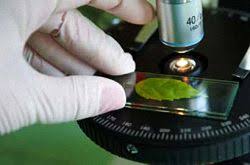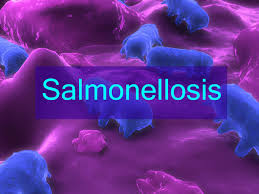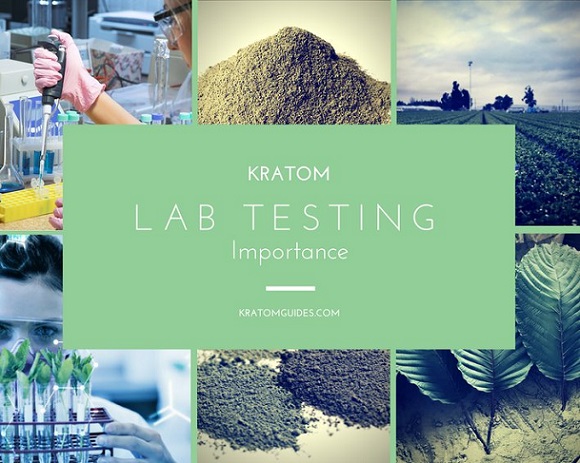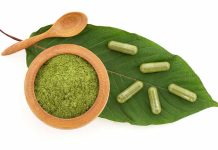It’s very crucial that before you make a substance public that is to be consumed by humans, it should be tested in the labs. The reason is simple. You need to know the effects and more importantly the side effects of the substance before making it public.
How many fatalities occur due to the substance, how sensitive is the substance, and what are the rare and common side effects? These are some of the evaluative questions that need to be answered before any substance is made public.
Similarly, it is important that Kratom is tested in the labs too. Kratom testing is not really prevalent because there is no proper regulation of Kratom in many parts of the world.
To remain on the safe side and to prevent it from getting banned it is time we go for Kratom lab testing.
What Is Kratom Lab Testing?
 Kratom lab testing is done to ensure that Kratom is sent to the market unadulterated and not in a harmful way. The FDA should accept the tests that are done.
Kratom lab testing is done to ensure that Kratom is sent to the market unadulterated and not in a harmful way. The FDA should accept the tests that are done.
Kratom lab testing is done to ensure that it is devoid of any heavy metals or pathogens.
The alkaloids that are frequently identified and tested in Kratom include Mitragynine and 7-hydroxy mitragynine.
It is checked if the content of these alkaloids is appropriate, they are not duplicated or replicated.
The alkaloids are tested against a reference that is the standard value. To evaluate the quality of Kratom it is tested for alkaloid content.
The amount of Mitragynine present in Kratom is around 1 to 2% only and 7-hydroxy mitragynine is even less.
Any Kratom companies, claiming to have more than this content have adulterated their product unless it’s an extract or a tincture.
The commonest pathogens in Kratom include mold and yeast and sometimes harmful aerobes and anaerobes including Coliforms, Salmonella, and Staph bacteria.
Kratom is also tested for heavy metals like arsenic, cadmium, lead, and mercury.
Why Does Kratom Lab Testing Matters?
We are aware of the fact that there are some misconceptions about Kratom. Though it has not been legalized for the use of consumption it can end up being consumed which is why it is important that its safety is proven.
Also, it matters a lot for the Kratom associations running all around the world to prevent it from becoming a Schedule I substance. They need to prove the safety of Kratom by regulating it like any other substance that comes on the market.
For them, one way is to go for Kratom lab testing and ensure that it is not adulterated, and contains no pathogens and heavy metals. This way they can even make the FDA happy.
Those vendors, who sell Kratom products without lab testing, end up with known side effects in their consumers. This gives a bad reputation to Kratom which in essence is not a bad product.
It is the responsibility of all vendors to provide free kratom samples to an appropriate lab for testing and checking for levels of metallic impurities, pesticides, and most of all pathogens like E. coli and Salmonella.
Salmonellosis Linked To Kratom Intake!
 In the month of February and March, there was an outbreak of Salmonella infection. More than 100 people suffered from the infection and had to be hospitalized.
In the month of February and March, there was an outbreak of Salmonella infection. More than 100 people suffered from the infection and had to be hospitalized.
Laboratory evidence suggested that these infections were linked to the consumption of Kratom along with different other products.
Health officials came into action and investigated the case to collect evidence. It was found out that the Kratom powder sold out between the months of January and February had to do something with this outbreak.
The strains of Salmonella which caused the outbreak are Salmonella Okatie and Salmonella Thompson.
Health officials reported that 73% of ill people stated that they became sick after consuming Kratom in the form of pills, tea, or powder. They indicated that they bought Kratom from various sources and online vendors. CDC urged people not to consume Kratom.
Considering this outbreak, it becomes so important for online vendors to go for Kratom lab testing as such events can not only have a negative impact on their business but put a quick ban to Kratom and its products. This adds significance to the Kratom lab testing.
Find the list of products linked to Salmonella and safety alerts on the FDA website here: https://www.fda.gov/Safety/Recalls/.
Which Lab Tests Are Used To Check Kratom Ingredients?
The lists of tests that Kratom may undergo include the following;
1) Identification of Botanical Compounds: This Is Done By 3 Tests
- High-Pressure Liquid Chromatography (HPLC).
- Gas Chromatography-Mass Spectrometry (GCMS).
- Thin Layer Chromatography (TLC).
2) Organoleptic Testing (The Use Of Human Senses For Identification)
- Scent: To check the aroma of the sample.
- Color: To compare it to an accepted standard.
3) Microbiology Testing
- Total Aerobic plate count/yeast and mold count: this test identifies and counts the microorganisms in the sample.
- Testing for E.coli and Salmonella.
4) Chemical Analysis
- Pesticides: The kratom samples should be free from pesticides.
- Heavy metals: this is done to identify metallic impurities.
5) Analysis Of Physical Properties
- Size of particles: this is checked by maneuvering the sample through a sieve to identify the size of the particles.
- Product density.
All of these tests may not be necessary for Kratom lab testing but they can be done to get approval from FDA.
How Can Kratom Lab Testing Be Done Properly?
When you are sending a sample of Kratom to be tested to a lab ensure that you send enough material along with a proper sample submission form to help in the identification of the strain of Kratom.
Send your Kratom samples with tracking to ensure that it reaches their destination. Label your sample clearly and mention the owner’s name.
Ensure that you do not adulterate your sample because labs can identify any sort of adulteration.
Conclusion
Kratom is a magic herb in today’s world, and safeguarding Kratom from getting banned is our responsibility so it is necessary that we enforce Kratom lab testing even if the vendors do not go for it.
We should be the ones asking for Lab test certificates from vendors before buying them. This is the only way to protect Kratom from having a bad reputation.









What labs can I use to test my Kratom?